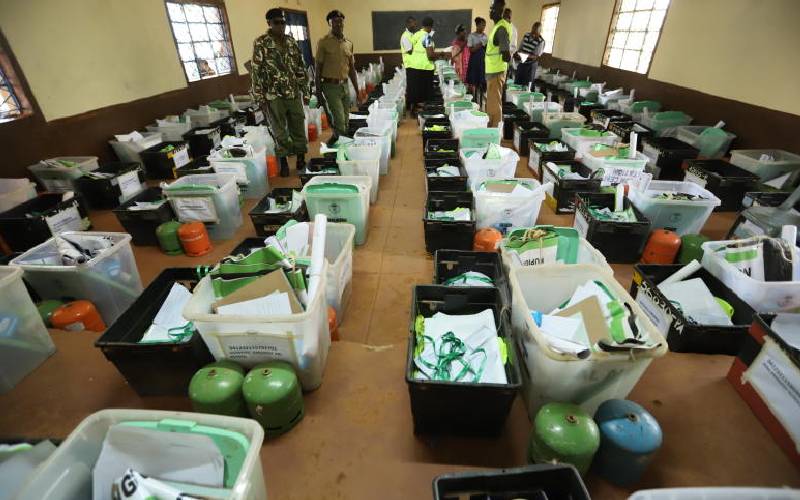×
The Standard e-Paper
Smart Minds Choose Us

IEBC officials and police inspect voting materials to be used for the Ugenya Constituency by-election at Sega Polytechnic on April 04, 2019. [Denish Ochieng, Standard]
As gloves get dropped off in the campaign trail, a keen observer cannot fail to notice some titbits about the inner workings of our politics and leadership at the top levels.